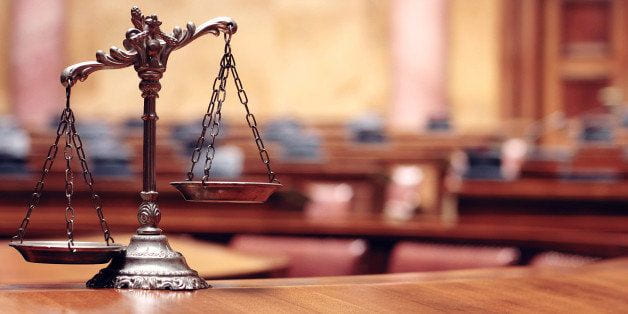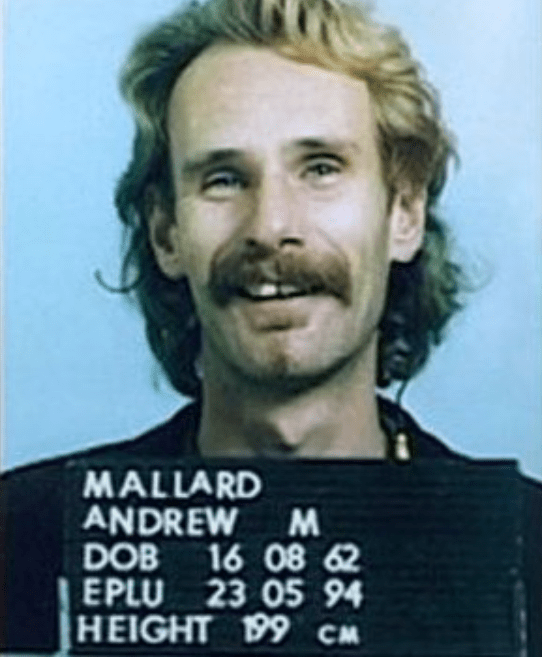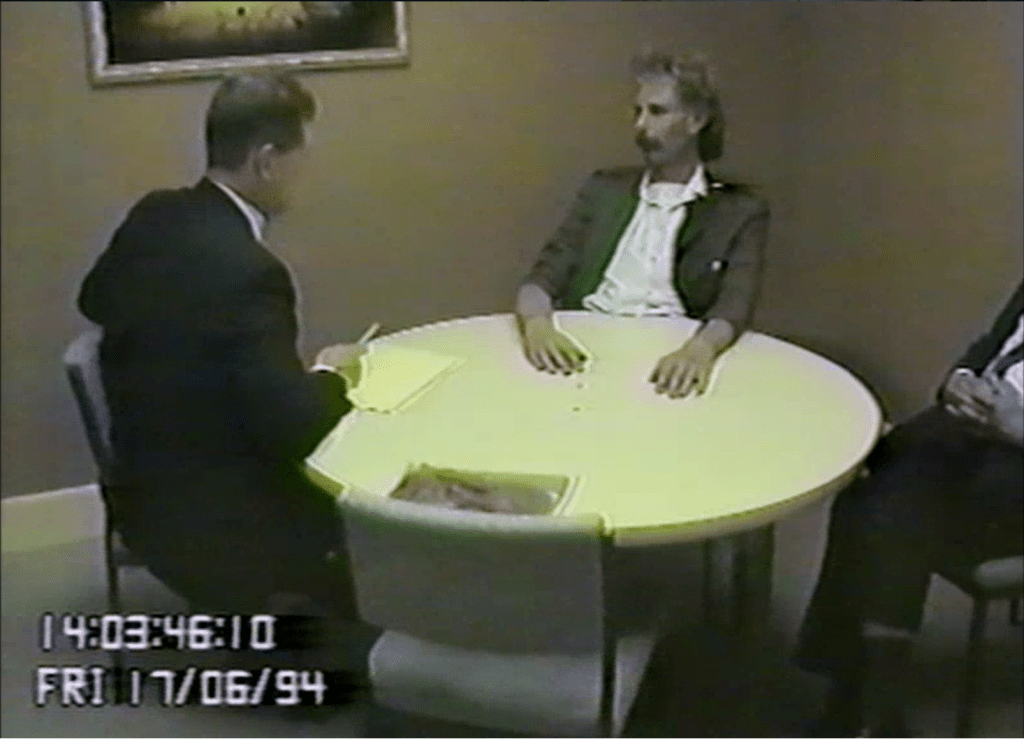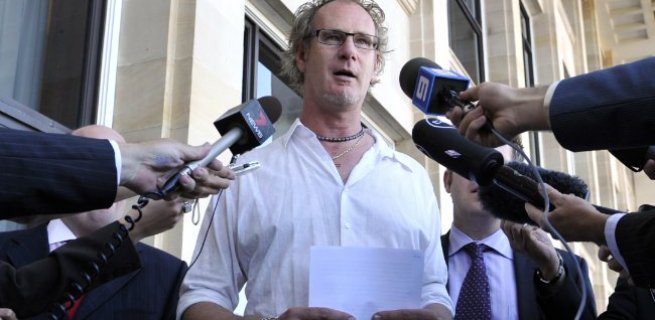Andrew Mallard: The Wronged Man

The Australian judicial system is one of the world’s most efficient and evolved legal systems. There have, however, been instances where justice has not been served. Our legal system employs a set of principles to govern its procedures to ensure that justice is served. However, these principles of justice are sometimes neglected, making it difficult to accomplish justice. Although no judicial system is perfect, the absence of justice can have unjust effects on individuals. The “Andrew Mallard Case v. the State of WA” in Western Australia was one of the cases where justice was compromised, with three main principles of justice being disregarded. These principles included the right to equality before the law, the right to a fair trial/hearing, and the impartiality of the judiciary. However, some principles were upheld, such as the right to a reasonable appeal to the high court, which admittedly contributed to Mallard’s restoration of justice. Nonetheless, this does not change the reality that the Australian judicial system upheld justice to an exceptionally low degree in this case. In fact, it was to an extent so low that an innocent man was sentenced to life in jail and was imprisoned for 12 years before his appeal was successful.

The Andrew Mallard Case
In 1994, Pamela Lawrence was found dead in her jewellery store, Flora Metallica, with many fatal head injuries. The police were under immense pressure to catch her murderer, and among the 136 original suspects, they narrowed down on Andrew Mallard, a daydreaming drifter with a history of manic mental illnesses. His interrogators reported that he had confessed to the crime and was without a doubt the “primary suspect.” Mallard was convicted of murder in 1995 and sentenced to 20 years in prison. Mallard’s family and lawyers lodged numerous appeals to get him released, and finally in 2005, the High Court annulled his conviction due to insufficient evidence of justice.
So how were the Principles of Justice Applied?
The Right to Equality Before the Law
The right to equality before the law means that all individuals should be treated in the same manner by the law, while all persons should be subject to the same laws. It also requires that the laws themselves provide equal protection for everyone. This is crucial as it ensures that all laws and policies are applied consistently and without discrimination toward both the accused and the defendant. In Andrew Mallard’s Case, this principle was compromised as police had manipulated and filtered out much of the information in witness statements and evidence to convict Mallard.
“An undercover officer took me about Fremantle, he bought me hotel rooms, alcohol, even cannabis with my maniac state, trying to befriend me and started asking me leading questions about May the 23rd”
Andrew Mallard – 27 May 2019 – From an Interview After His Release:

He also wasn’t treated equally to others as he was taken off the streets for interrogation just because he acted strangely due to his medical condition, bipolar mood disorder. However, police didn’t consider this at the time and interrogated him either way, even when Mallard was in the maniac stage of his disorder. At a later time, police also took him from a psychiatric hospital to question him without any legal representation. However, this principle of justice was partially upheld because the legal process was still fair and equal because he was able to stand trial before a jury, judge, witnesses, and others. Therefore, the right to equality before the law was heavily compromised in this case, however, still being slightly upheld.
The Right to a Fair Trial/Hearing
The right to a fair trial/hearing means that all persons and groups, no matter their circumstances, are allowed an equal opportunity to contest in court. This is important as it provides a right for parties to be heard and to respond to allegations made against them, allows for the presumption of innocence until proven guilty and also helps establish the real truth, which is vital for everyone, whether they are a victim, witness or the accused. The trial must be held in the presence of the accused. The accused is defended by a lawyer and the lawyer must be allowed to cross-examine all the prosecution witnesses and show their evidence and arguments. This principle was first compromised as Mallard was also said to be harassed, intimidated, beaten and threatened with being shot to say what the police wanted him to say in court and during the interrogation process. This led to him saying things that were contrary to his opinion leading to his conviction which was incredibly unfair to him. Mallard also received no assistance with his mental condition, putting the right to a fair trial in great jeopardy. Mallard’s lawyer during his hearings was young and inexperienced, as said by Mr Mallard, so he asked the judge to get another more skilled lawyer however was denied while normally people are allowed to. The police also concealed crucial material and removed and fabricated facts in witness statements and evidence that could have swayed the case in the defendant’s favour, which completely goes against this principle of a fair a trial and ultimately led to Mallard’s conviction. Also, the media had an impact on Mallard’s trial since the jury could have been swayed by what the media and others had to say, considerably influencing the verdict and general fairness of the trial, which connects to the next principle that was breached. Another example is how the prosecutor’s lawyer claimed that Mallard’s murder weapon was a wrench, despite having facts and a study in front of him in court indicating that a wrench could not feasibly inflict Pamela Lawrence’s head injuries, which is similarly unethical and unfair in a trial. However, the fact that he was given the time to argue his case with his own evidence and his lawyer in court, as well as having a judge, jury and others present, suggests that the principle was somewhat upheld throughout the legal process. As a result, even if it was only marginally upheld in this case, the right to a fair trial was seriously compromised.

The Impartiality and Independance of the Judiciary
An impartial and independent judiciary means that the judge and jury must base their verdict on an impartial assessment of the facts and their application to the law, without improper influences, direct or indirect, from any source. They also cannot be pressured to vote or accept money bribes from the government or others. This is a vital principle as it makes sure that no emotions and biases are present as well as judging the evidence given objectively. This principle was clearly violated because Mallard’s trial was also affected trial by the media as mentioned previously. The jury could have been swayed by what the highly bias media, family, and friends had to say and already formulated opinions about Mallard. This is a clear breach of the impartiality and independence of the judiciary; how could it be fair if the jury already had an opinion on whether or not he was guilty? Also, even though much of the information received from the police by the judge and jury were skewed and fabricated, they still decided to make their verdict considering the given evidence. However, this principle was also partially supported, since by the judge’s best efforts to urge the jury to base their judgement only on the facts and evidence presented (even though they did not) demonstrates how the judge in this case somewhat supported this principle. Because of this, the judiciary’s independence and impartiality were severely compromised in this case, yet they were nevertheless somewhat upheld.

The Right to a Reasonable Appeal
The right to a reasonable appeal means that either party can determine whether a decision of a lower court was correct, in the higher court. This will happen after they persuade the Court in a preliminary hearing that there are special reasons to cause the appeal to be heard. This principle is crucial to the legal system as it ensures that, as far as possible, courts arrive at correct decisions and prevent an innocent man to be imprisoned. This principle was supported in this case, even with the immense violations, as Mallard had the opportunity twice to have his case re-heard in higher-ranked courts. After a thorough review was undertaken of the case and further police investigation with the modern technologies of today, Mallard’s conviction was quashed in a 5-0 judgement. This led to Andrew Mallard finally walking free in 2006 which was a result of being able to have an appeal. Mr Mallard was also awarded $3.25 million in damages and stress for his wrongful conviction and punishment and many, many years in prison – 12 years – just for being innocent. Mallard was also allowed a defence lawyer in court to lodge those appeals and was able to receive support from friends and family throughout the appeal process. However, the fact that some of his appeals were rejected or did not result in his release from prison shows that the judges may not have assessed the appeal well, given the evidence clearly proving he was the murderer, indicating that the right to a reasonable appeal may have been slightly compromised in this case. This demonstrates how this principle was somewhat compromised but still mostly upheld in this instance, resulting in Mallard’s lawful release from custody.

How could the case have been improved?
The Mallard case may have been improved in many ways, including by reviewing the material provided by the police earlier. For instance, following the incident, authorities tested the wounds caused by the reported “wrench” that Mallard used, on a pig. However, the injuries discovered on Pamela Lawrence were not the same as these, so this test could have been carried out much earlier, supporting the right to equality before the law and preventing this wrongful judgement conviction. This principle also could have been upheld by having the evidence examined by additional parties unconnected to the case, preventing the bias which resulted in Mallard’s conviction. Reviewing this data would have helped identify the distorted scenario between the police and the interrogators much sooner. Another area where the s could have been improved is if the authorities, in this case, had taken Mallard’s mental illness into account. Mallard could have been questioned and taken to court at a later time, once he had recovered from his bipolar mental disorder, or he could have had some legal and mental assistance alongside him. As a result, Mallard would respond far more accurately, and he would also have raised more objections to the police’s false statements, maintaining the right to a fair trial or hearing. Further, to ensure that the jury’s verdict isn’t influenced by comments made by the public or the media, the jurors could be housed in a separate hotel or housing area throughout the duration of the trial and investigation. This would have supported the impartiality of the judiciary.

Summary
When it comes to ensuring that hearings and tribunals produce unbiased, consistent, and predictable court and legal judgements, the Principles of Justice are critical. In our society, they exist to enforce laws in order to attain a fair and reasonable outcome. We require these principles in the legal system because they establish reasonable and fair standards for judging what people deserve as per their actions. However, in the Mallard case, these principles and guidelines put in place were heavily compromised and violated which ultimately ruined his, as outlined above. So, in this essence, we need the legal system to regulate crime, and if it isn’t a fair and equal system, people will lose faith in it and in the fundamental human understanding of the legal system. For example, if we are not treated equally before the law, we may lose values such as democratic values – ‘the equality of all people’. Furthermore, if people lose trust in the legal system and in concepts such as equality, they may be more likely to discriminate against certain races and other groups. As a result, these principles of justice are not only important in the legal world, but they also have wide-reaching implications in our day-day interactions.